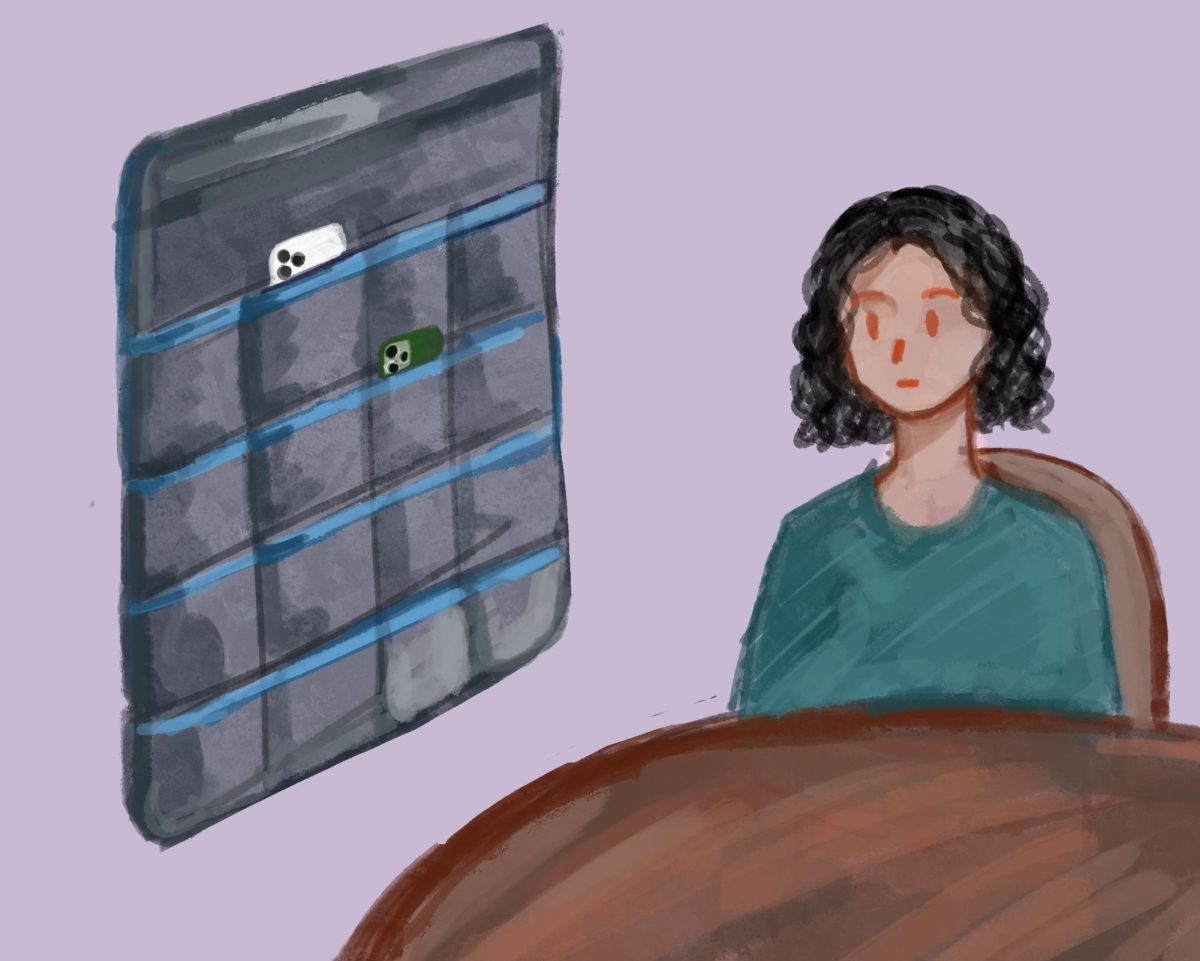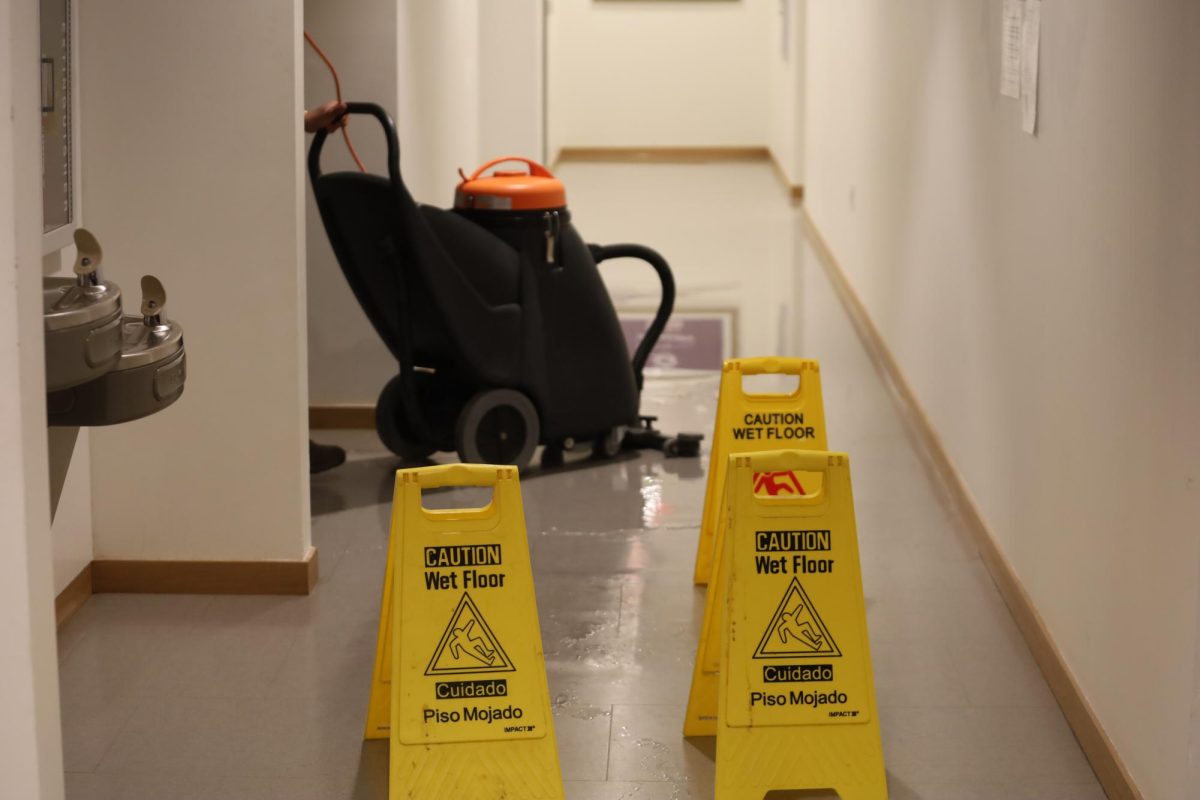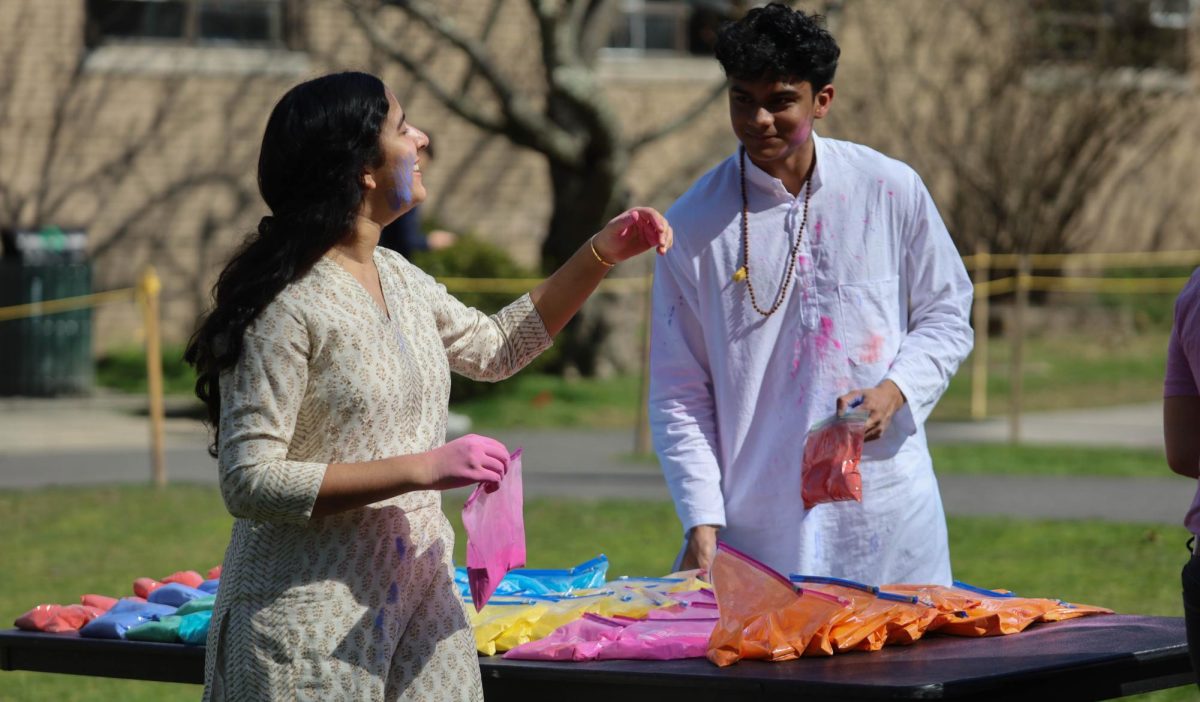This year, Masters has implemented a new cell phone policy in the classrooms, where all students must put their phones in a hanging pocket at the start of class, instead of keeping them in bags, backpockets, or elsewhere.
Head of Upper School, Peter Newcomb, informed the Masters community about this change on the first day of classes, September 5.
The decision to enact this phone policy evolved over time, Newcomb stated. A few years ago, one department bought cell phone holders for their classrooms. Those teachers spoke highly of the positive outcomes that started after using the holders, one being that students became more engaged in class. Because of this, many teachers wanted a school-wide rule that mandated the phone holders, and the decision to enforce the rule was made at the end of the 2022-2023 school year.
Newcomb said, “During lockdown and the hybrid year that followed, technology was how we connected as a class. Once we returned to being in the classroom full time, teachers noticed an uptick in phone usage around the Harkness table…We knew we wanted to provide a way to help students be fully present, without the distraction of a phone.”
He explained that there were two main reasons for this change. “The first was our mission…two of the most important words in our mission statement are ‘we gather.’ So, it’s important for us to be fully present, both physically and mentally.” He continued, “The second thing we considered was the wealth of research out there about the impact of cell phone usage on learning and on mental health.”
One piece of research, published in Educational Psychology, demonstrated that when students are allowed to use electronic devices for non-academic purposes in the classroom, long-term retention is negatively affected and their end-of-term exam grades worsen. A study from Rutgers University–New Brunswick discovered that students who don’t use electronic devices in class, but attend lectures where their use is permitted, also do worse – suggesting that phone use undermines the classroom learning environment. Another study published in The University of Chicago Press Journals indicates that even the presence of a device in a room reduces available cognitive capacity, calling it the “brain drain” effect.
However, some students seem to be skeptical of the change in policy. Junior Molly Brooks said, “Sometimes students receive urgent text messages or calls during class and may need to excuse themselves, in which case a phone should be allowed.” Brooks elaborated, “I think that high school students are old enough to be trusted with phones in class, and by taking them away, it makes it hard for us to learn self-control around phones. Self-control with technology is also key when completing homework outside of school.”
Freshman Arlo Goldberg said, “I like the intention of the phone policy — to be connected and in the present for classes, but I feel like there are other ways to do it than keeping it in the pockets. I think high schoolers can be trusted with their phones. But, in reality, anyone who has a phone is tempted by it— no matter what age. Sometimes others have better control of that temptation than others, but it is always there. Maybe it is a little over the top, but it is reasonable as to why the school does it.” He continued, “My phone is definitely a distraction in class to me. I notice myself sometimes reaching for my pocket to find my phone, and it isn’t there. This definitely keeps me engaged in my lesson because once I do have it in my hand, even if it’s only to check what class I have next, I can easily get distracted… I don’t think it is the end of the world to be without your phone. I mean, it’s 75/80 minutes, and it’s not like it’s trapped in a box somewhere, it is still in the classroom with you.”
“Anecdotal feedback [about the policy] from faculty has been very positive…since we are a Harkness school, when students are more engaged in class, classes are more engaging,” said Mr. Newcomb.














